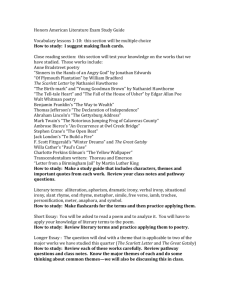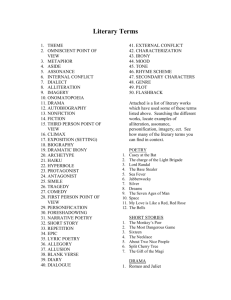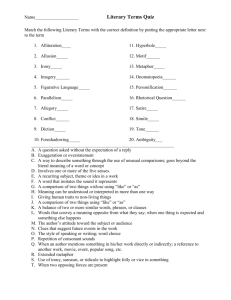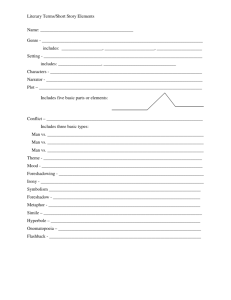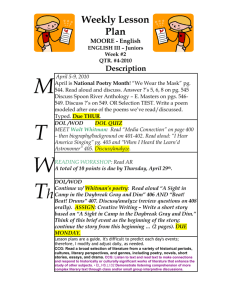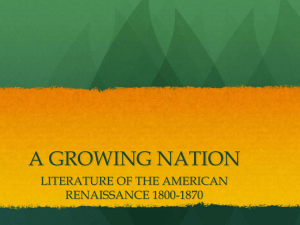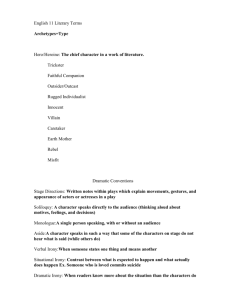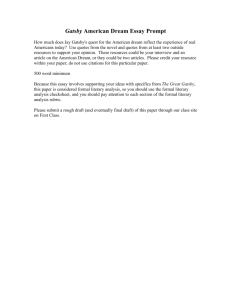AMERICAN LITERATURE FINAL EXAM REVIEW LITERARY
advertisement
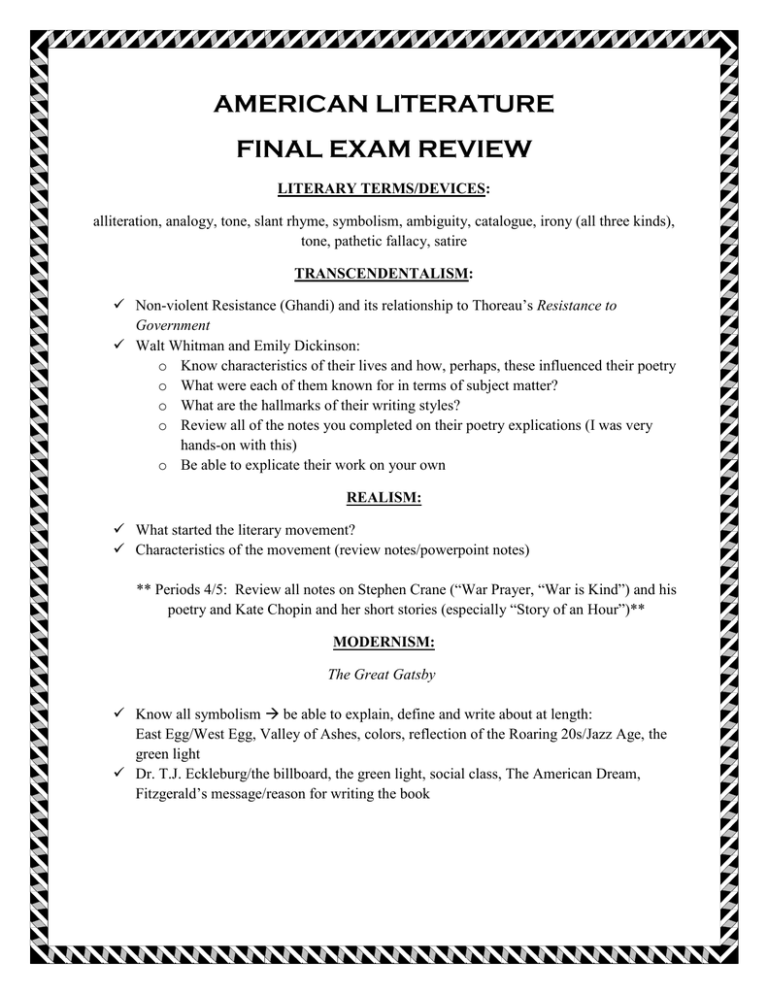
AMERICAN LITERATURE FINAL EXAM REVIEW LITERARY TERMS/DEVICES: alliteration, analogy, tone, slant rhyme, symbolism, ambiguity, catalogue, irony (all three kinds), tone, pathetic fallacy, satire TRANSCENDENTALISM: Non-violent Resistance (Ghandi) and its relationship to Thoreau’s Resistance to Government Walt Whitman and Emily Dickinson: o Know characteristics of their lives and how, perhaps, these influenced their poetry o What were each of them known for in terms of subject matter? o What are the hallmarks of their writing styles? o Review all of the notes you completed on their poetry explications (I was very hands-on with this) o Be able to explicate their work on your own REALISM: What started the literary movement? Characteristics of the movement (review notes/powerpoint notes) ** Periods 4/5: Review all notes on Stephen Crane (“War Prayer, “War is Kind”) and his poetry and Kate Chopin and her short stories (especially “Story of an Hour”)** MODERNISM: The Great Gatsby Know all symbolism be able to explain, define and write about at length: East Egg/West Egg, Valley of Ashes, colors, reflection of the Roaring 20s/Jazz Age, the green light Dr. T.J. Eckleburg/the billboard, the green light, social class, The American Dream, Fitzgerald’s message/reason for writing the book Final Exam Study Guide Define the following Literary Terms & Devices: 1. alliteration: 2. analogy: 3. tone: 4. slant rhyme: 5. symbolism: 6. catalogue: 7. irony 8. tone 9. pathetic fallacy 10. satire Transcendentalism 11. List 2 aspects of Walt Whitman’s life that influenced his poetry: a. b. 12. What was Whitman’s subject matter? 13. a. b. What are 2 hallmarks of Whitman’s writing style? 14. a. b. List 2 aspects of Emily DIckinson’s life that influenced his poetry: 15. What was Dickinson’s subject matter? 16. What are 2 hallmarks of Whitman’s writing style? a. b. Realism: 17. What started the literary movement? 18. a. b. c. d. List 4 Characteristics of Realism 19. In War Prayer, what is the subject of Twain’s irony? 20. In a Mystery of Heroism, was the main character a hero? Why or why not? 21. In War is Kind, what is the irony? 22. Explain the irony in Story of an Hour: Modernism Briefly explain (a) what each of these symbols from The Great Gatsby represent and (b) list an example from the novel: 23. East Egg a. x b. x 24. a. b. West Egg x x 25. a. b. Valley of the Ashes x x 26. a. b. Green x x 27. a. b. 28. . Gold x x Yellow x a. x 29. a. b. White x x 30. a. b. Eyes of Dr. Eckleburg x x 31. a. b. Gatsby’s Empty Mansion 32. a. b. Time 33. What does The Great Gatsby tell you about Fitzgerald’s thoughts about the American Dream? Modernism Poetry 34. Explain how William Carlos Williams’s editing and word choice impact the imagery of his poems:
